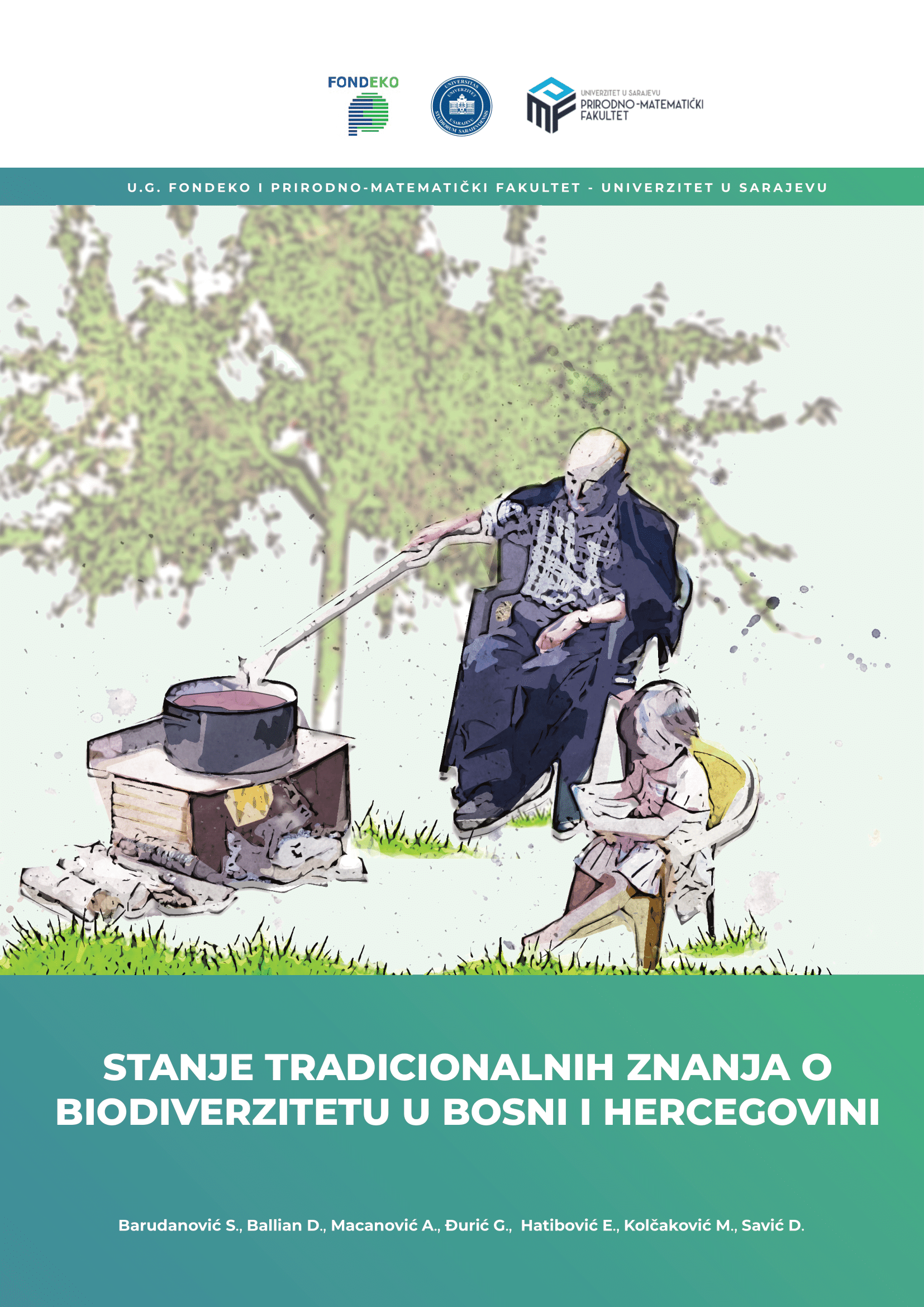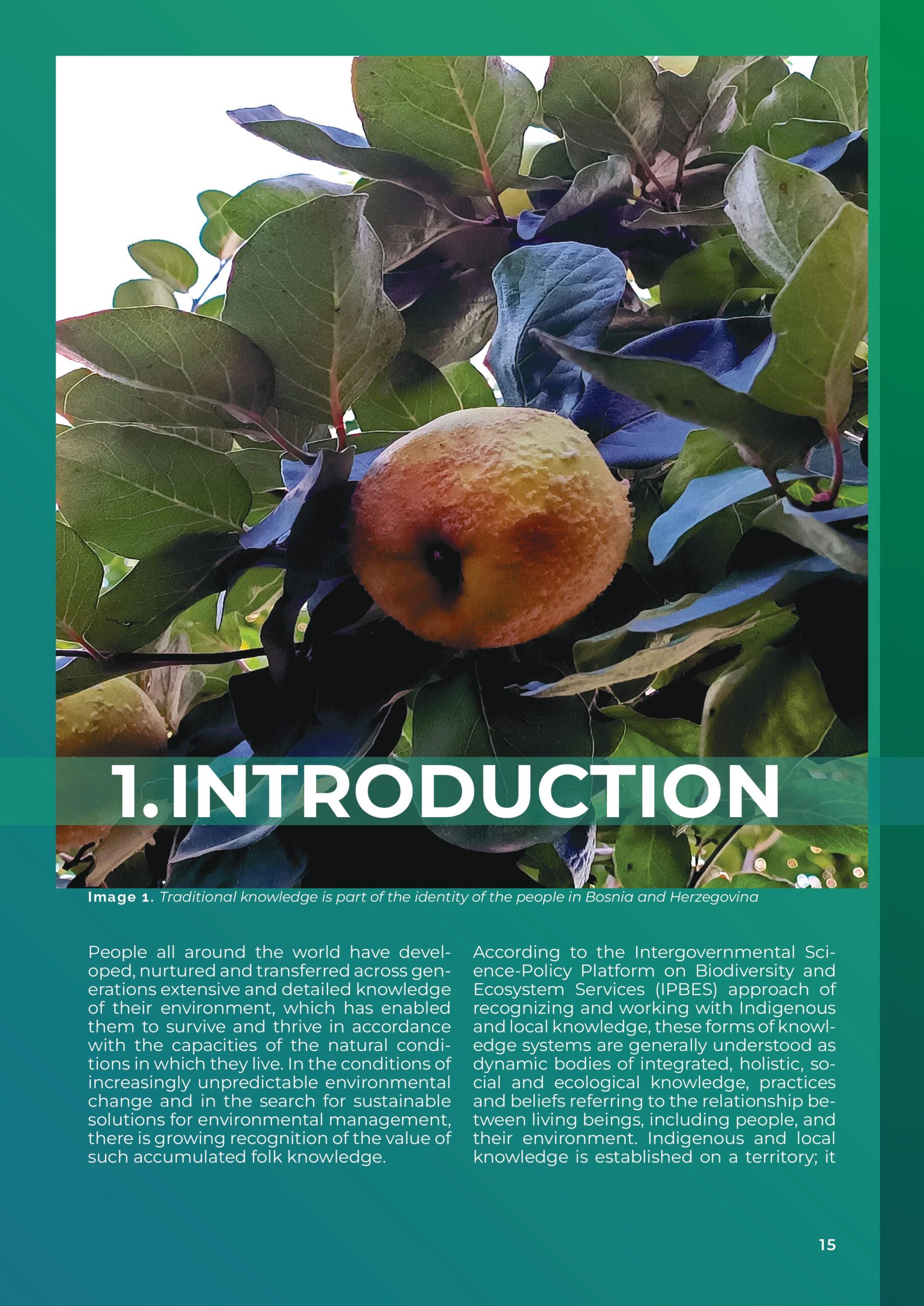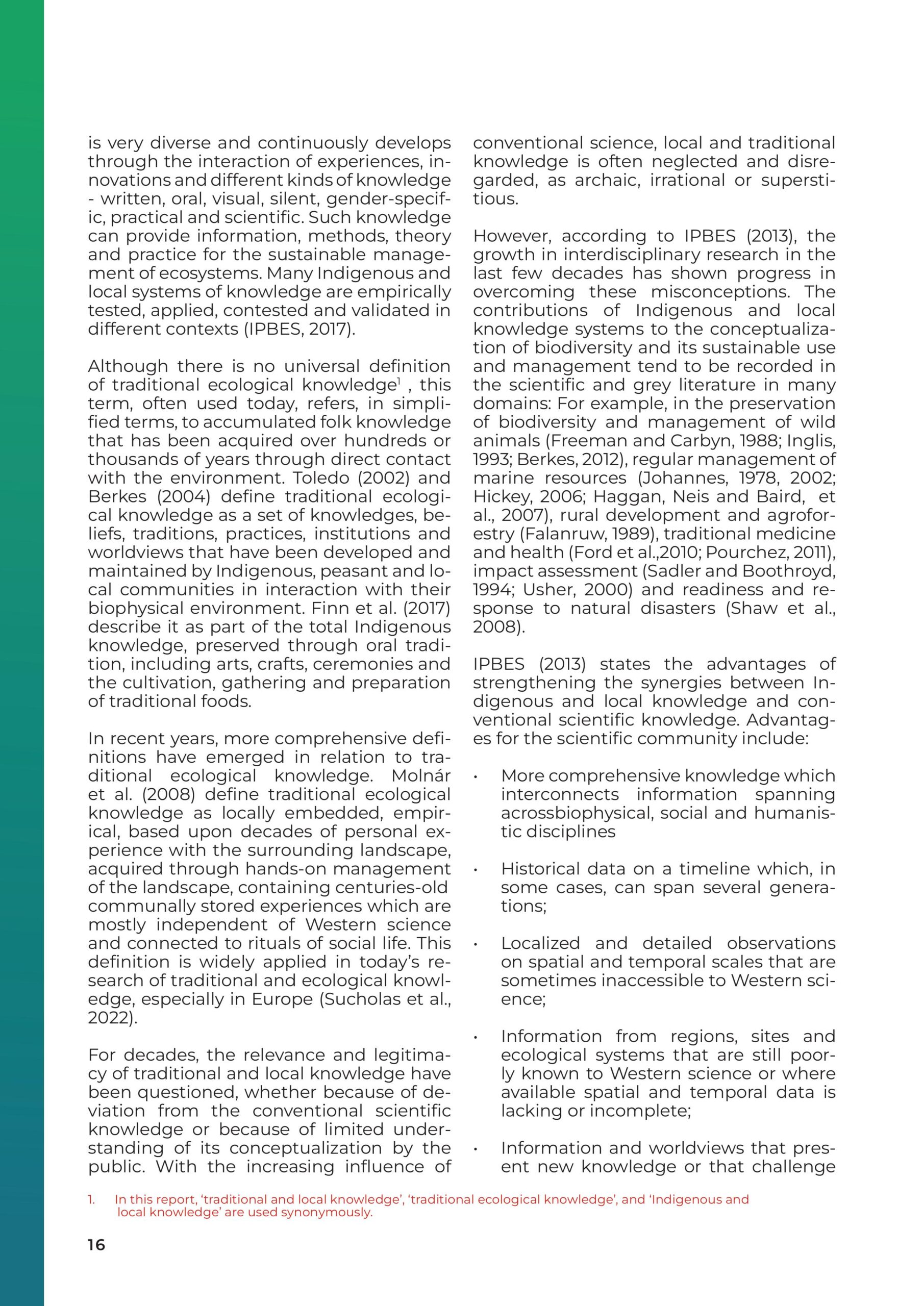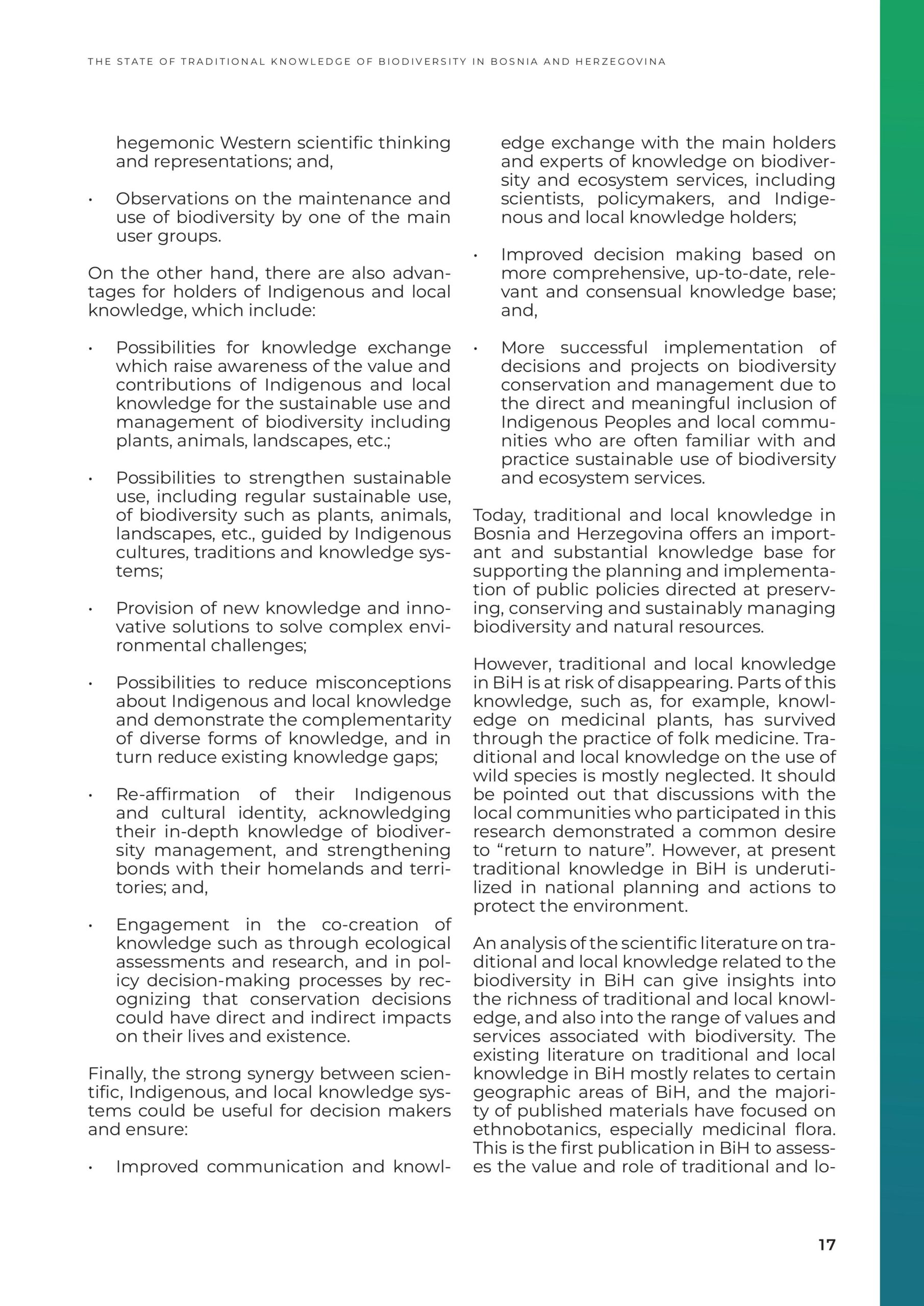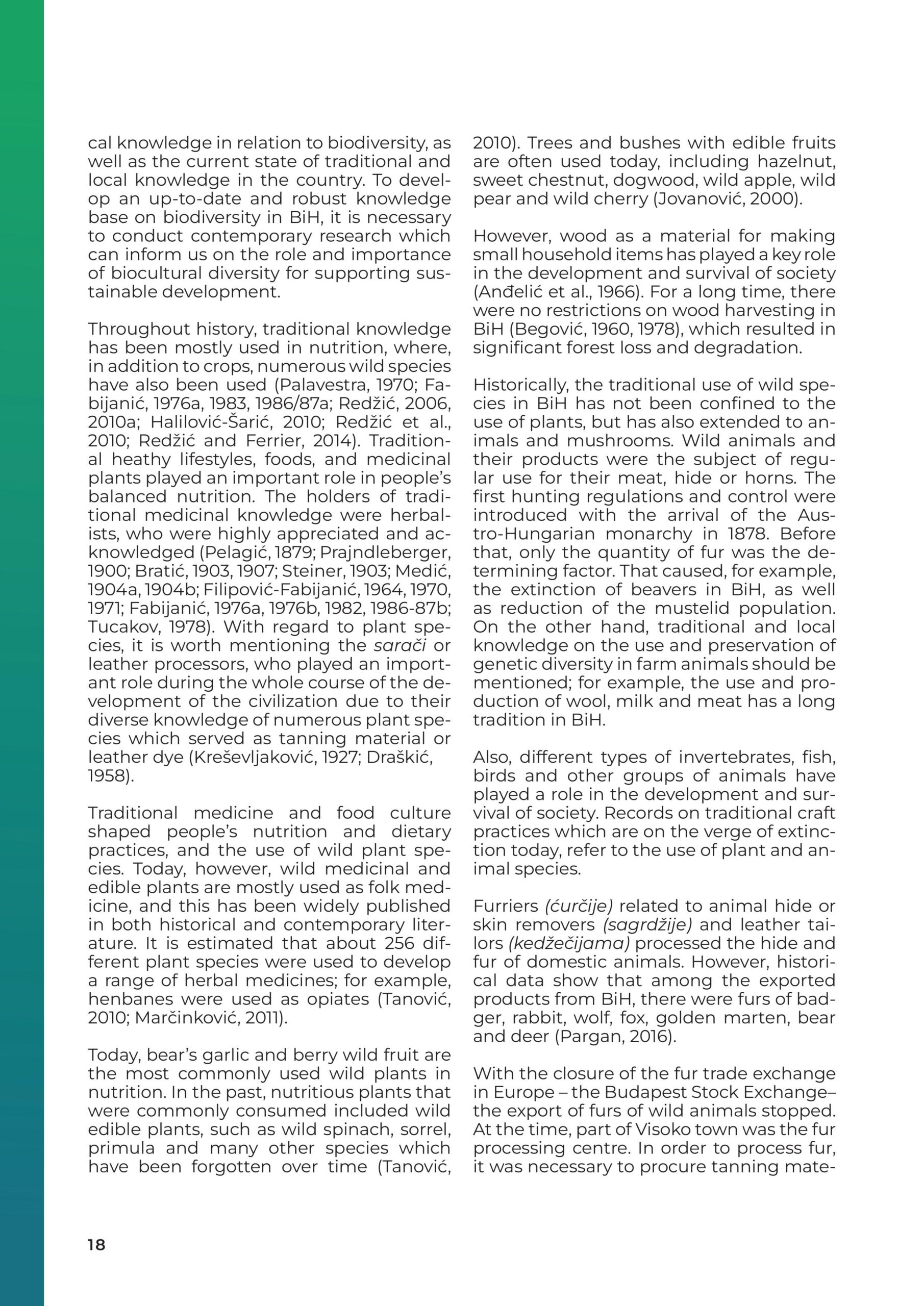About the Publication
The risk of losing traditional knowledge and practices in Bosnia and Herzegovina (BiH) was recognized immediately after BiH acceded to the Convention on Biological Diversity. During the preparation of the first National Biodiversity Strategy and Action Plan (BiH NBSAP 2008-2015), strategic goal B5: Conservation of traditional knowledge and practices in BiH, was defined as one of the priorities.
In the second National Biodiversity Strategy and Action Plan (BiH NBSAP 2015-2020), with the already well-recognized richness and potential of Bosnian-Herzegovinian traditional knowledge and practices, a concrete goal was established (By 2017 – establish centers for the conservation and implementation of traditional knowledge and practices, especially in rural areas of interest).
Special interest in the state and diversity of traditional knowledge and practices in BiH arose through participation in the work of the Intergovernmental Science-Policy Platform on Biodiversity and Ecosystem Services (IPBES); the platform aims for synergy between classical scientific and traditional knowledge, as well as their use in making sustainable decisions. Over the last decade, IPBES has actively worked on ecosystem assessments at global and regional levels.
With the global recognition of the need for national ecosystem assessments, the project “Assessment of the State of Nature and Management of Natural Resources in Bosnia and Herzegovina” was initiated. With full organizational, technical, and expert support and cooperation between the World Conservation Monitoring Centre (WCMC, Cambridge) and the University of Sarajevo, through financial support from the International Climate Initiative (IKI, German government), the Assessment project aims to determine the state of knowledge on biodiversity, benefits from nature, pressures, scenarios, and management options for nature in Bosnia and Herzegovina.
Traditional knowledge and practices are a significant but insufficiently recognized, used, and preserved part of the overall knowledge about the nature of Bosnia and Herzegovina. The richness of traditional knowledge and practices in Bosnia and Herzegovina is proportional to the richness of our nature/biodiversity. In an effort to include traditional knowledge and practices in the Assessment of the State of Nature and Management of Natural Resources, with the support of the UNESCO Programme on Local and Indigenous Knowledge Systems (LINKS) and their Support Unit for this knowledge, a project was initiated in Bosnia and Herzegovina to research local and traditional knowledge as support for the national ecosystem assessment.
The goal of the project, and this publication resulting from it, is to assess the current state of traditional and local knowledge about the nature/biodiversity of BiH. Research for the project, conducted using best practices from approaches to recognizing and working with traditional and local knowledge (IPBES, 2017), resulted in a large amount of collected information.
This publication contains the part of the collected and processed information related to the state of traditional and local knowledge, and the presentation of the richness and diversity of this knowledge in Bosnia and Herzegovina is to be expected in our next publication.
With sincere gratitude to all our interlocutors in local communities, we hope this publication will initiate positive changes in the conservation of traditional knowledge about biodiversity in Bosnia and Herzegovina.
OVERVIEW
The book “The State of Traditional Knowledge of Biodiversity in Bosnia and Herzegovina” represents a comprehensive study focusing on the importance of preserving traditional knowledge and practices of local communities in the context of biodiversity conservation and sustainable development. The authors provide a detailed overview of various aspects of traditional knowledge, including the use of plants, animals, and natural resources, as well as the ways in which local communities have transmitted this knowledge and skills through generations.
This publication emphasizes the importance of integrating traditional knowledge into contemporary strategies for biodiversity conservation and nature preservation. Through numerous examples and case studies, the book illustrates how this knowledge can contribute to biodiversity conservation, climate change adaptation, and the promotion of sustainable local communities. It also highlights the need to strengthen collaboration between scientific researchers, decision-makers, and holders of traditional knowledge to ensure a holistic approach to nature conservation.
